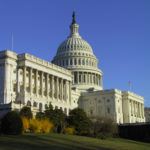 In a scathing editorial by Wall Street Journal writer, David Weidner [“Where the U.S. Once Led, Europe Is Now Far Ahead”], compares our country’s response to the financial crisis circa 2008 – 2010, and the European response:
In a scathing editorial by Wall Street Journal writer, David Weidner [“Where the U.S. Once Led, Europe Is Now Far Ahead”], compares our country’s response to the financial crisis circa 2008 – 2010, and the European response:
“…in the realm of financial reform, Europe’s regulatory impetus has been on target. Two moves—the consideration and limited implementation of a financial-transaction tax and capping of banker bonuses—have been bold and courageous.
The tax would raise much-needed funds to pay for regulation that meets the scale of a financial system that has become more powerful in many ways than government. The cap on bonuses is a simple solution to a simple problem: greed-driven risk taken in public-markets economies on which the public welfare depends.
Europe hasn’t found the perfect solution, but these two moves humble U.S. efforts at curtailing the behavior that led us into a global financial crisis. Abroad, the idea is to deincentivize the danger but have a response equal to the crisis, if it erupts.
In the U.S., the answer seems to be the 848-page Dodd-Frank law. It seeks to microregulate every piece of the financial world, while ignoring the industry’s rapid changes.
What if things go awry? The underwhelming answer: A committee of regulators would determine if failing institutions should be unwound.”
Kudos to Mr. Weidner! This point needs to be made again, and again, and again. Our politicians’ response to every crisis – contrary to Rahm Emanuel’s doctrinaire approach – should not be to legislate a whole new set of rules, more complicated than the last. Note to Chris Dodd and Barney Frank: The horse had already left the barn by the time you started drafting your 848 page tome. No need to build another bigger and more elaborate barn; just put a better lock on the door. Sometimes the simplest solutions are the best. ~PCQ


